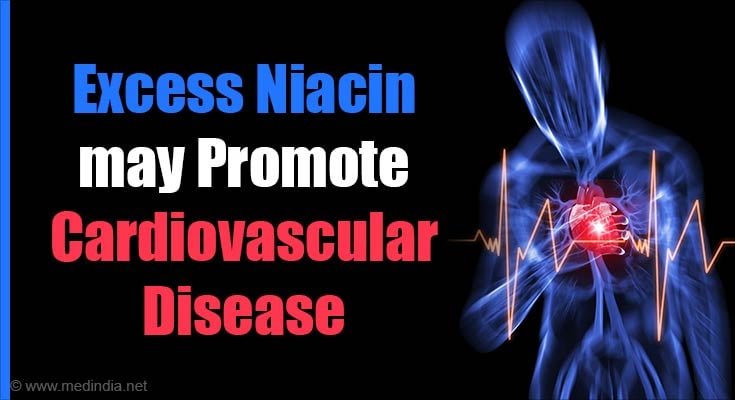Niacin Supplements Could Lead to Heart Attack

- Additives like carrageenan are linked to blood sugar fluctuations
- Even plant-based supplements can harbor allergens like carmine
- Dr. Granger advises scrutinizing labels for quality ingredients
Maintaining optimal health is a priority for many, the allure of supplements is undeniable. From promising younger-looking skin to better cognitive function, there seems to be a supplement catering to every health need. However, recent studies have cast a shadow of doubt on the safety of these seemingly innocuous capsules. What lies beneath the surface may not always be as beneficial as advertised.
A study conducted by the Cleveland Clinic unearthed a troubling connection between niacin, also known as vitamin B3, and an increased risk of heart disease. This revelation strikes a blow to the widespread belief in the cardiovascular benefits of niacin, which is often touted for its anti-aging properties and purported ability to improve blood fats, skin health, and brain function. Furthermore, thiamine, a vitamin commonly added to breakfast cereals, has been linked to cognitive decline, raising concerns about its role in exacerbating the risk of dementia.
Niacin, also known as vitamin B3, has long been championed for its anti-aging properties and its ability to improve blood fats, skin health, and brain function. However, a study by the Cleveland Clinic has found a troubling link between niacin and an increased risk of heart disease, challenging its perceived cardiovascular benefits. #niacin #medindia’
Advertisement
The Hidden Ingredients: Carrageenan
Beyond the vitamins and minerals themselves, it’s the hidden additives lurking in supplements that pose a potential health hazard. Dr. Carol Granger, a registered nutrition practitioner with expertise in biochemistry and microbiology, warns against the inclusion of certain additives that often go unnoticed by consumers. Carrageenan, for example, commonly used as a stabilizer in foods like ice cream and plant-based milk, has been implicated in blood sugar fluctuations, particularly concerning individuals with diabetes.
Dr. Granger advocates for a discerning approach when selecting supplements, akin to scrutinizing food labels for ultra-processed ingredients. She advises consumers to steer clear of supplements containing a myriad of unfamiliar additives, emphasizing the importance of prioritizing quality over quantity. The Viridian Dejunk your Life Report 2024 further underscores the prevalence of questionable ingredients in mass-produced supplements, urging consumers to exercise caution.
Advertisement
Potential Health Hazards
The implications of consuming supplements rife with dubious additives extend beyond mere discomfort. Dr. Granger outlines a myriad of potential health issues, ranging from abdominal and digestive issues to skin problems and allergies. Ingredients such as croscarmellose sodium and guar gum have been linked to intestinal blockages and digestive discomfort, while artificial colors may exacerbate asthma and worsen allergies. Moreover, certain additives like talc and potassium sorbate have been associated with dizziness, fainting, and skin irritation.
Advertisement
The Vegan Dilemma
Even individuals adhering to a vegan lifestyle are not exempt from the risks posed by certain supplement ingredients. Carmine, derived from insects, has been found to elicit severe allergic reactions, underscoring the need for vigilance among all consumers, regardless of dietary preferences. Moreover, the presence of talc, often used as an anti-caking agent, poses a potential threat to vegans and non-vegans alike, emphasizing the indiscriminate nature of these hidden dangers.
While the allure of supplements may be enticing, it’s essential to approach them with a critical eye. The landscape of the supplement industry is fraught with hidden hazards, from niacin-linked heart disease to the unsuspecting additives that populate supplement capsules. Dr. Granger’s insights serve as a poignant reminder of the importance of informed decision-making when it comes to safeguarding our health. In a world where wellness trends come and go, knowledge remains our most potent defense against the hidden dangers lurking in our supplements.
“In a world where wellness trends come and go, knowledge remains our most potent defense against the hidden dangers lurking in our supplements.”
Reference:
- How excess niacin may promote cardiovascular disease- (https://www.nih.gov/news-events/nih-research-matters/how-excess-niacin-may-promote-cardiovascular-disease)
Source-Medindia
Source link
#Niacin #Supplements #Lead #Heart #Attack



